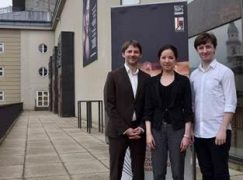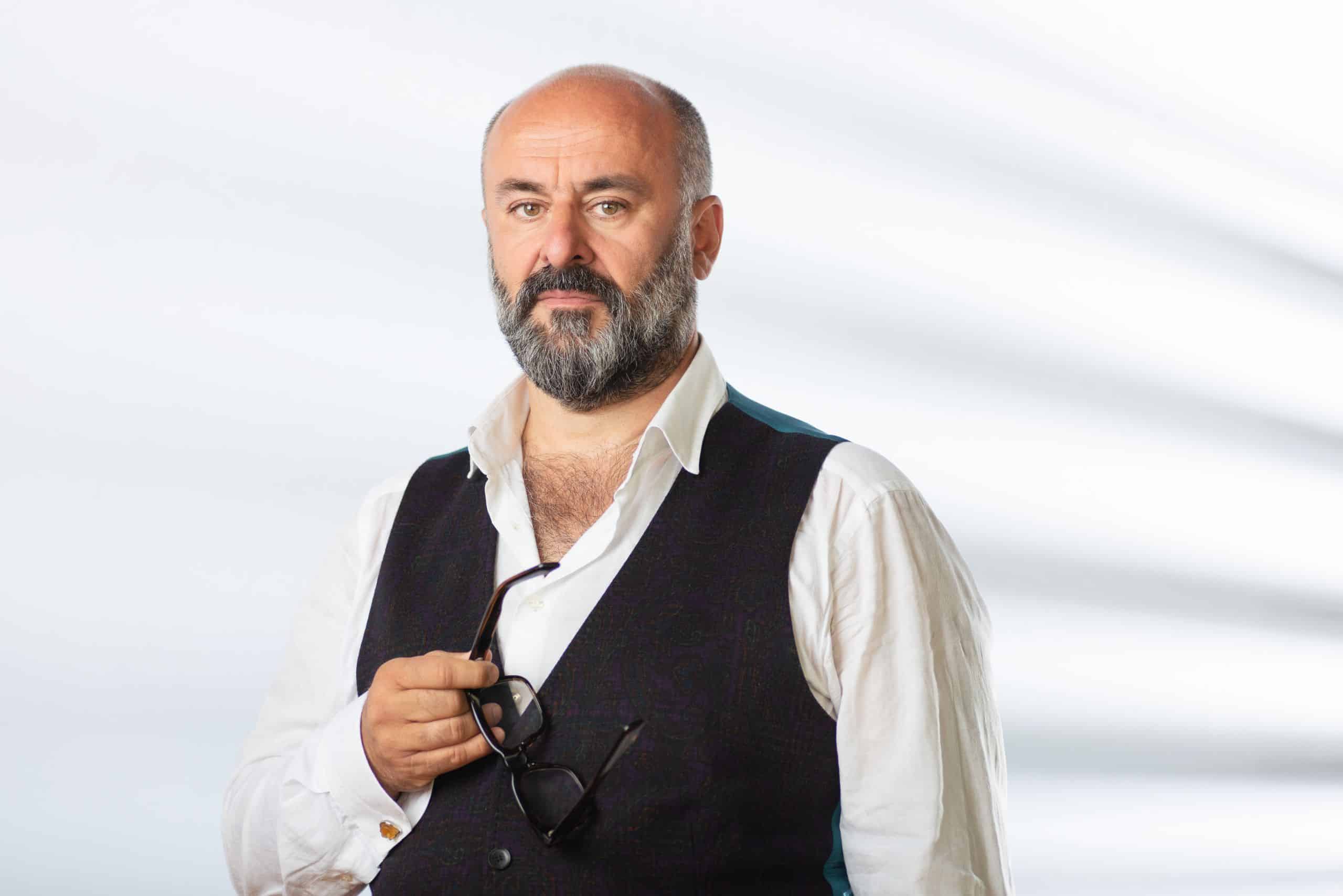Salzburg tests finalists with Schoenberg’s opus 9
UncategorizedThe nine candidates shortlisted for the Nestlé and Salzburg Young Conductors Award were tested on Arnold Schoenberg’s Chamber Symphony, op 9.
The second piece they were allowed to choose themselves.
So long as it was one of these three pieces: Pierre Boulez Dérive 1 for 6 instruments, Paul Hindemith Chamber music for 12 solo instruments and Beat Furrer Gaspra for Ensemble.
The three finalists left standing are:
Gábor Káli (Hungary) Erina Yashima (Germany) and Sergey Akimov (Russia)

Photo: SF/Anne Zeune





I wish success to the contestants.
Unfortunately this “music” is still being imposed upon musicians by means of mandatory pieces in competitions, etc.
Maybe it’s time for this farce to end.
It’s an early Schoenberg piece and largely tonal, albeit luscious late-Romantic stretched tonality.
Yes, and it is probably S’s very best piece, because still expressive and nowhere the stiffness of rationalistic system mongering. It can stand next to any Beethoven symphony without blushing.
http://www.youtube.com/watch?v=BPQU05tfzqQ
I rather like the 2nd Chamber Symphony, which is one of Schoenberg’s late tonal works. They do exist.
I know… Schoenberg always longed to return to his earlier, still rather tonal idiom, but he had been ‘driven by fate’ to serve ‘progress’. I think the 2nd is not so good as the 1st though, the 2nd seems to go round in a circle without finding the exit, maybe expressing his state of mind vis-à-vis his musical problems.
‘I have always much regretted that I was not permitted to move a bit further in the style of my 1st chamber symphony, because I thought that here, there still were immeasurable and unused possibilities.’ In an interview in 1931. Later-on he indeed finished sketches of his 2nd chamber symphony. How ironical.
Even Hindemith is pushing the boat out too far?! Self education is part of the key to broadening your horizons a bit.
When I read: “Nestlé and Salzburg Young Conductors Award” I am horrified to see that such a renowned organisation as Salzburg Festival is proud to be connected with one of the most disgusting multinational groups on earth. I think the organisators of Salzburg Festival should separate themselves as soon as possible from doubtful corporations even if they give a lot of money!!
Classical music industry’s primary concerns are hardly ethical.
It is a business like any other, I fail to see a higher moral ground here.
Some high gloss ‘fullofmeatygoodness’ PR is of course in constant circulation, whilst schmoozing big corporations continues, regardless of the nature of their business.
There is no musical substance to be interpreted in both Boulez and Furrer, only technically getting through the score, where there are no wrong notes (because there is no concept of ‘rightness’ or ‘wrongness’ in their work). It’s merely about colour, so in a way it’s quite easy and no musicality required:
http://www.youtube.com/watch?v=RZDKMVqkbpQ
http://www.youtube.com/watch?v=G9gq7wDNI_M
I totally agree.
In my experience, young musicians stumble mostly in slow movements. Sometimes not only the very young.
I remember attending a BSO open rehearsal with Nelsons a couple of years ago, where they rehearsed Ein Heldenleben and a Mozart piano concerto. Fast, loud, colorful passages were the best. The weakest link for the conductor and the orchestra was the slow movement of the Mozart, by far. Not so for the season soloist, Richard Goode. He was at his most profound in the slow movement. The contrast between soloist and orchestra was striking.
Nothing is so difficult to bring-off as a Mozart slow movement, for any instrumental combination, because you have to feel the music.
Leo, these are masterworks and your small nineteenth century (if that advanced) mind cannot grasp such musical brilliance. Go back and listen to Weber and leave us in the modern world alone. And if you get ill, please try applying leeches and undergo bleeding out..it’s a new type of therapy that might help and a doctor can now do it at
night by candlelight after you return from working in the fields.
This is an interesting contribution, fully revealing a certain idea of ‘modernity’: if something is new, it must therefore be better. If someone appears to observe some erosion or regression, that can only be a conservative or nostalgic, sentimental narrowness. Critique of something that is new / contemporary, must therefore be the result of not understanding, or worse: stupidity, because understanding would inevitably result in warm embrace. It is confused, simple thinking, but makes no sense when you think it through. Can the evolution of history only move upwards? Or is it also possible that history makes a serious dip? History itself overwhelmingly demonstrates that things don’t develop in a straight, pleasant line upwards.
Schoenberg was a genius. Nobody else posting here is.
But you cannot know. And then, Schoenberg was not ‘a genius’, but a composer ‘of genius’, which is not the same.
He was also a gifted and original painter and a great man of letters (his essays and his correspondence are testament to his literary skills). Hanns Eisler has said of him “Schönberg war einer der grössten Komponisten, nicht nur des 20. Jahrhunderts.”
Maybe they should be tested with “Der Zauberberg” from Siegmund von Hausegger’s “Barbarossa”? No one could possibly complain. https://youtu.be/Ej73o8sT-go?t=14m4s